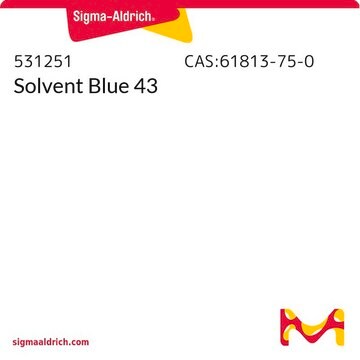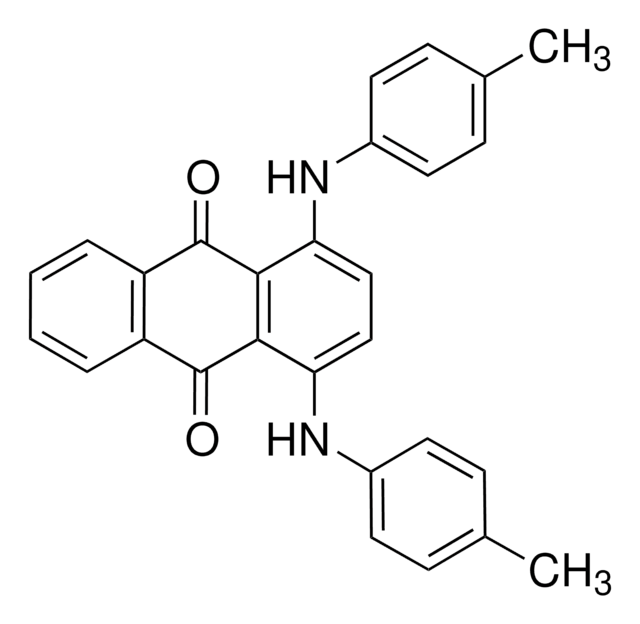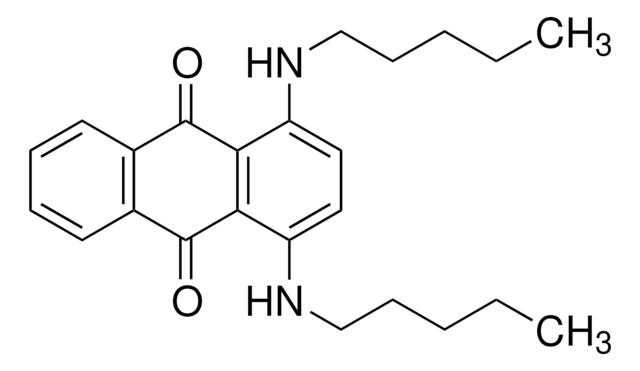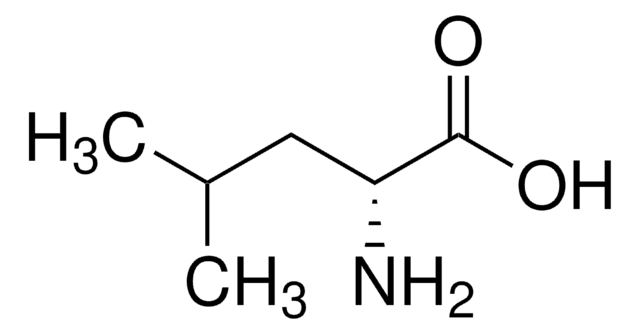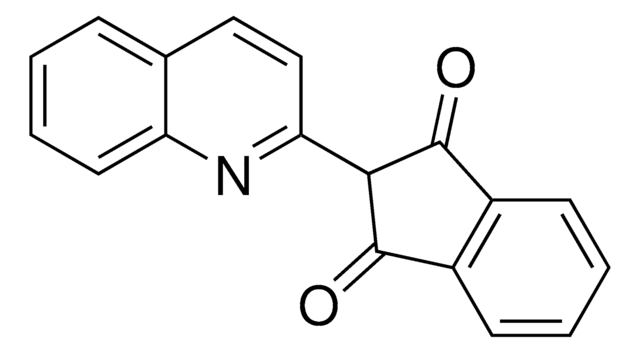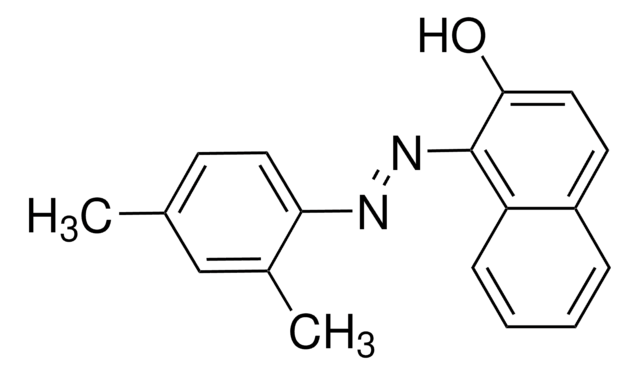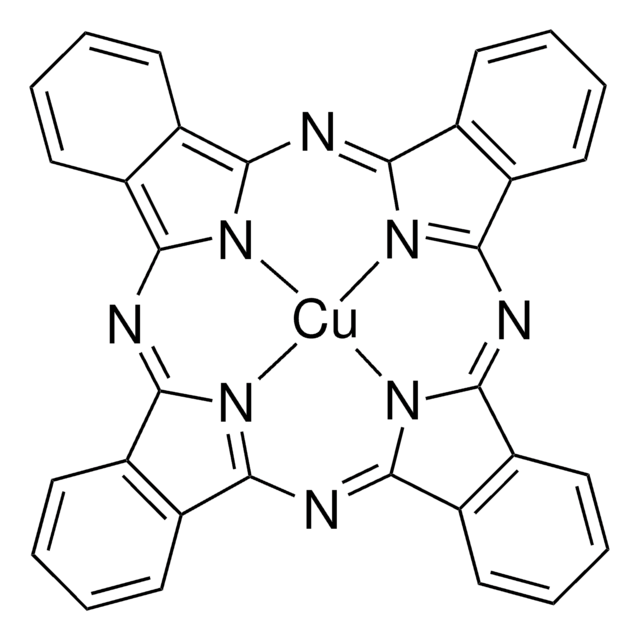229121
Solvent Blue 59
Dye content 98 %
Synonym(s):
1,4-Bis(ethylamino)-9,10-anthraquinone, Atlasol Blue 2N, Sudan Blue
About This Item
Recommended Products
assay
≥97.5% (HPLC)
form
powder
composition
Dye content, 98%
mp
215-217 °C (lit.)
λmax
595 nm
640 nm (2nd)
application(s)
diagnostic assay manufacturing
hematology
histology
storage temp.
room temp
SMILES string
CCNc1ccc(NCC)c2C(=O)c3ccccc3C(=O)c12
InChI
1S/C18H18N2O2/c1-3-19-13-9-10-14(20-4-2)16-15(13)17(21)11-7-5-6-8-12(11)18(16)22/h5-10,19-20H,3-4H2,1-2H3
InChI key
JUUJTYPMICHIEM-UHFFFAOYSA-N
Related Categories
General description
Application
signalword
Warning
hcodes
Hazard Classifications
Aquatic Chronic 4 - Eye Irrit. 2 - Skin Irrit. 2 - STOT SE 3
target_organs
Respiratory system
Storage Class
11 - Combustible Solids
wgk_germany
WGK 3
flash_point_f
Not applicable
flash_point_c
Not applicable
ppe
dust mask type N95 (US), Eyeshields, Gloves
Choose from one of the most recent versions:
Certificates of Analysis (COA)
Don't see the Right Version?
If you require a particular version, you can look up a specific certificate by the Lot or Batch number.
Already Own This Product?
Find documentation for the products that you have recently purchased in the Document Library.
Customers Also Viewed
Our team of scientists has experience in all areas of research including Life Science, Material Science, Chemical Synthesis, Chromatography, Analytical and many others.
Contact Technical Service